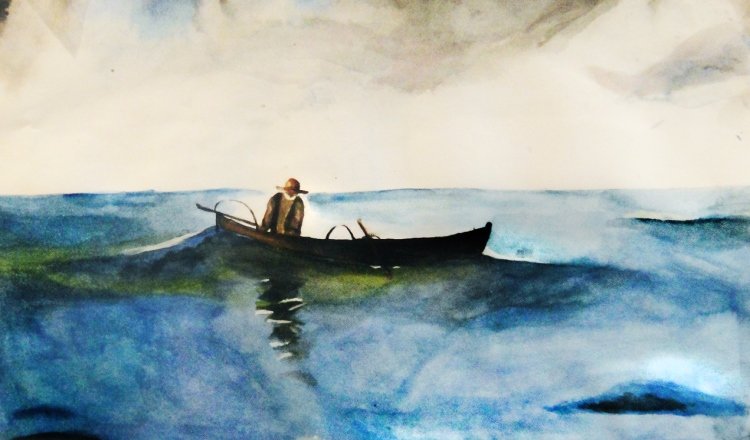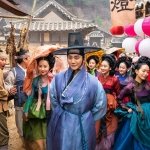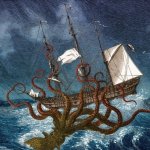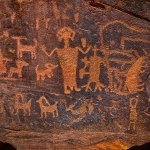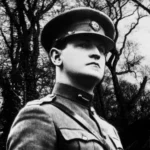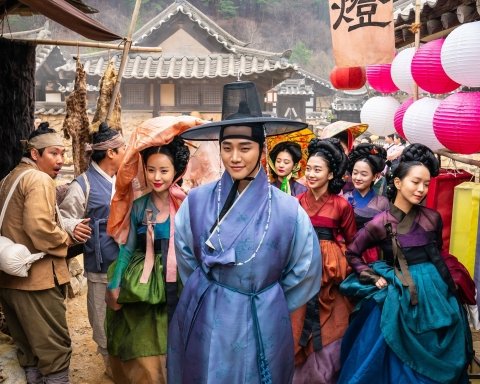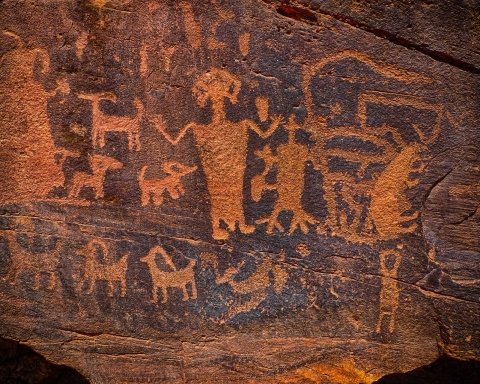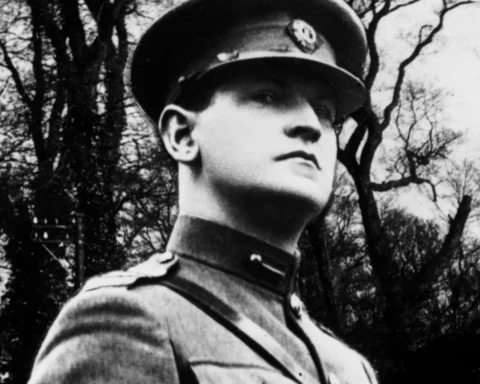We see that literature has been attributed with the function of utilizing the explicable nature. The reason for this is to probe deep into inner reality of humankind. Also, through considering the multifaceted essence of nature. We can deduce that indifferent aspect of nature. That has been adopted as the mere concept for the character development. Being a noteworthy epitome of this concept, The Old Man and the Sea (1952) by Ernest Hemingway stays hugh rank. It features protagonist in whose personalities the qualities of hope, tenacity and love are encoded. However, while reflecting the concept in his work, the author, I assume, displayed personal observational elements. He fundamentally reached an outcome. The outcome has small important parts. It’s about how nature interacts with humans.
This paper aims to analyze the organic relationship between the protagonist and nature. It explicitly highlights the role of nature in human life as portrayed in this work.
In this sense, by taking consideration of the fact that nature is a crucial landmark in understanding of humanly values. This paper aims to analyse the organic relationship between protagonist and nature. thereby explicitly pointing up the position of nature in human life as portrayed in this work

The novel entitled as the Old Man and the Sea writes a sea voyage. This journey is highlighting Santiago’s inner peaceful world. It helps readers understand his connection with nature. It is also coccecting the core of his Personality.
Santiago is an old man who has been experiencing ignominy by his community. The Reason was failure in fishing for 84 days. People have given his history as a self-reliant and experienced man of the sea. Santiago’s perseverance drives him to face the challenge at sea. He seeks to catch the marlin to avoid feeling like a failure.
Considering that he is self-fulfilled in the past, being strong and conversant with the sea, perseverance leads him to the ordeal in sea so as to capture the marlin through which he intends to jettison the interpellation as an “unsuccessful”.
In this sense, one can conclude that Santiago tries to utilize sea, nature . if I daresay, in order to re-gain his fulfilment.
To explain his profession, Santiago often remembers “the past.”He sees striking images of lions, symbolizing power. These images show his current weakening strength.
Santiago wishes he had the boy with him on his adventure. Despite his declining vitality, his motivation, machismo, gives him the endurance he needs.
.
He says that “A man can be destroyed but not defeated”. Furthermore, the reader could also notice that there exists a close relationship between him and his “la mar”. To put it more simply, Santiago carries the concepts of unity with the sea.
An apt quotation for this statement, the writer described him as the following;
“…his eyes were the same colour as the sea and were cheerful and undefeated”.
However at some point, Hemingway uses positive adjectives. These adjectives indicate the pillars of Santiago’s personality. They center upon hope, as in “Every day is a new day.
“Santiago’s approach to nature is a crucial point. It requires consideration because he respects every species in the sea. This makes him an eco-centric person.
He states that “I love you and respect you…”. Santiago’s respect is so strong that he starts talking to the birds. Then, he talks to the marlin, which he sees as “the brother” he’s determined to kill. He considers the marlin as his brother and says the following statement;
“I wish I could feed him. He is my brother.”
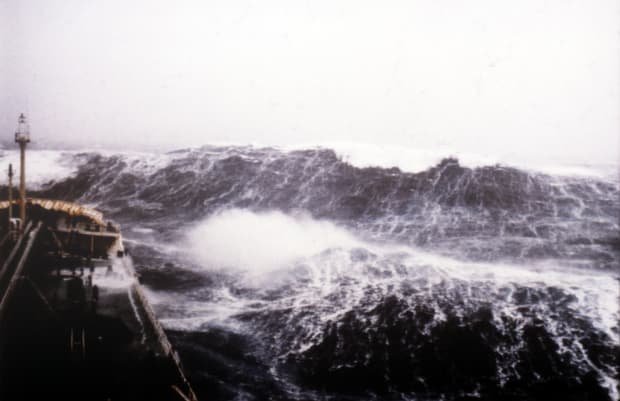
Nature doesn’t care about what humans do and can take back whatever it gives. Hemingway, perhaps without realizing it, portrays the sea as the Great Mother Goddess. Santiago sets out to kill the marlin. He represents the struggle of humanity. This reflects nature’s indifferent aspect, as the archetype suggests.
He is explicitly against a “greater, or more beautiful” entity emphasizing the relegation of humankind by nature. Therefore, Santiago undergoes egregious experiences. These experiences are such that he lacks affiliation to any religion. He is led to propitiate God to help him.
He says “I am not religious…I promise to make a pilgrimage to the Virgin of Cobre if I catch him”, thus justifying our statement. Yet, from a secular point of view, I presume he begs nature to help him. She, concretely, aids him to catch the fish, and to regain his self-fulfilment. In parallel with this pronouncement. Santiago expresses his feeling by these words: “I think the great DiMaggio would be proud of me today”.
However, As mentioned above, nature embodies the qualities of the Great Mother Goddess. This allows the reader to see her negative side.
After letting Santiago appreciate his fleeting sense of fulfillment, she attacks to rupture his feelings in a hidden way. This exactly strengthens the image of the Great Mother Goddess
Santiago highly treasures his brother and expresses like this way;
“I want to see him, and to touch and feel him. He is my fortune”.
This thought of his shows us that the marine he has killed is the most important thing preoccupying him. Nevertheless, nature covets to re-claim her possession. It’s as if to mock him within her own domain.
Sharks, at this point, are the puppets of hers to realize her intent plan. Although Santiago challenges these creatures with his knowledge.
However, the primal power of nature weakens his strength. Eventually, he is defeated by nature. In this context, Santiago didn’t have any chance to change people’s views on his failure, despite all his efforts.
Being aware of this situation, Santiago expresses in this;
“They beat me, Manolin. They truly beat me”.
In conclusion , nature is reflected as an indifferent phenomenon. Santiago endeavors to utilize it for his purpose in this work. Despite Santiago’s harmony with nature and his veneration of it. Her provision of success for him is coincident with his failure.
All in all, we can understand that humankind is part of nature. Nature exposes humankind to the indifferent aspect of nature. In this masterpiece, we can conclude that nature has the ability to catapult humankind into cordial yet volatile experiences. We can understand these experiences as nature’s punitive actions.
However, human beings eventually concede. And thenature underpins the sequence of unpalatable events. She also shows the reality of life, thus paving the way for self-completion. This also bolsters the spirit, as happened in this work.

